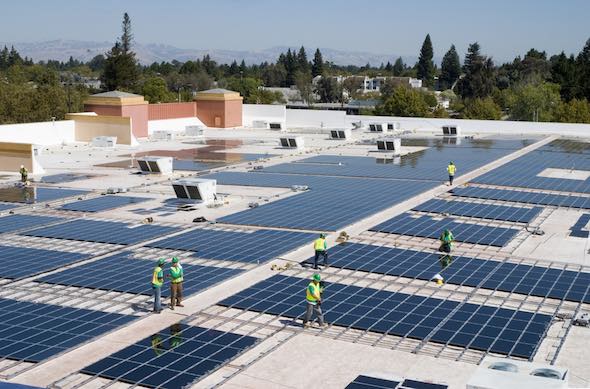After all the hard work made by many Australian organisations chasing net zero, a concerning indicator has come to light which, if it does emerge this year, will negatively affect the progress they’re making, risking their competitiveness and ability to meet their targets.
We undertook a global survey of business leaders, including Australian businesses, and the findings should be cause for concern. It found that, despite recognising the necessity of decarbonisation, nearly half (48 per cent) of Australian organisations are poised to pause their decarbonisation investments if macroeconomic conditions worsen this year.
Sadly, the economic forecast is cloudy at best. The Reserve Bank of Australia has warned that “it will be some time yet before inflation is sustainably in the target range” of two to three per cent, and that it is not “ruling anything in or out” with regards to further rate increases.
But while it would appear on the surface to make financial sense in the short term to pull back on decarbonisation initiatives, doing so would be an own goal, one that jeopardises not only our environmental future but also their long-term viability and reputation.
The argument for sustained investment in decarbonisation goes beyond environmental concerns; it is a strategic imperative for business to ensure not just success, but survival.
In an era where consumer preferences and investor demands are increasingly shaped by environmental considerations, companies that backtrack on their sustainability commitments risk falling behind those which remain steadfast and on the faster track to net zero.
And there’s a sneaky truth behind the finding that 48 per cent of Australian organisations may reduce their decarbonisation efforts this year; flipping the number, it means 52 per cent aren’t reducing it. Regardless of macroeconomic conditions, they’re staying on the path to decarbonisation.
However, the question of “to invest or not invest” in decarbonisation strategies amid economic uncertainty may not solely be a measure of dollars and cents, but sentiment – as dwindling confidence in the effectiveness of sustainability strategies among Australian businesses is both apparent and alarming.
Our research found that just 16 per cent of Australian organisations recognise the competitive advantage of robust sustainability strategies – this, compared to a response rate in the affirmative of 52 per cent from the previous year’s survey – highlights an emerging, and somewhat sudden, crisis of conviction.
It may be driven by the fact that many organisations have availed of the “quick wins” required to start the decarbonisation process, such as setting targets, shifting to renewables where possible, upgrading inefficient machinery, and other initiatives.
Now, they’re onto the harder, more complex implementations which have anything from two-year to 10- year or 15-year implementation cycles. But they need to see decarbonisation as a whole-of-business transformation, not a series of bespoke projects disparate from one another.
Boards and executives should view decarbonisation as an imperative, as opposed to just another risk management or compliance issue, thereby taking a strategic approach to operationalising and delivering on net zero.
Our research shows that just 12 per cent of Australian companies with climate targets are on track. Therefore, it is time for boards to get a grip and get hands-on.
Unfortunately, many remain hands-off. Globally, 35 per cent of respondents say their organisation’s leadership sees these initiatives as low priority, with their only involvement being to sign off strategies and budgets developed elsewhere.
Without the right level of executive attention and ownership, change simply will not happen. Even worse, capital will be misallocated and the opportunity to build organisational muscle will be lost. Instead, we will see uneven progress, the emergence of silos and initiative fatigue as decarbonisation becomes a series of singular projects, many harder and less successful than they need to be.
Decarbonisation is no different from any other exercise in organisational transformation, except that it is perhaps the most challenging one that humankind has ever faced, one that really cannot be delivered by small teams of sustainability professionals..
Acknowledging that decarbonisation is, and will continue to be, disruptive, companies – led from the top – need to view decarbonisation as a transformation initiative, one that cannot be achieved by under-resourced sustainability teams with change delivered in silos.
This is going to be expensive and challenging, with advantage accruing to those who align to a clear strategic vision, mobilise effectively and get it right first time – and this can only come from the top.
James Ramsay is the managing director and head of Australia for Engie Impact, the sustainability consultancy arm of Engie.






